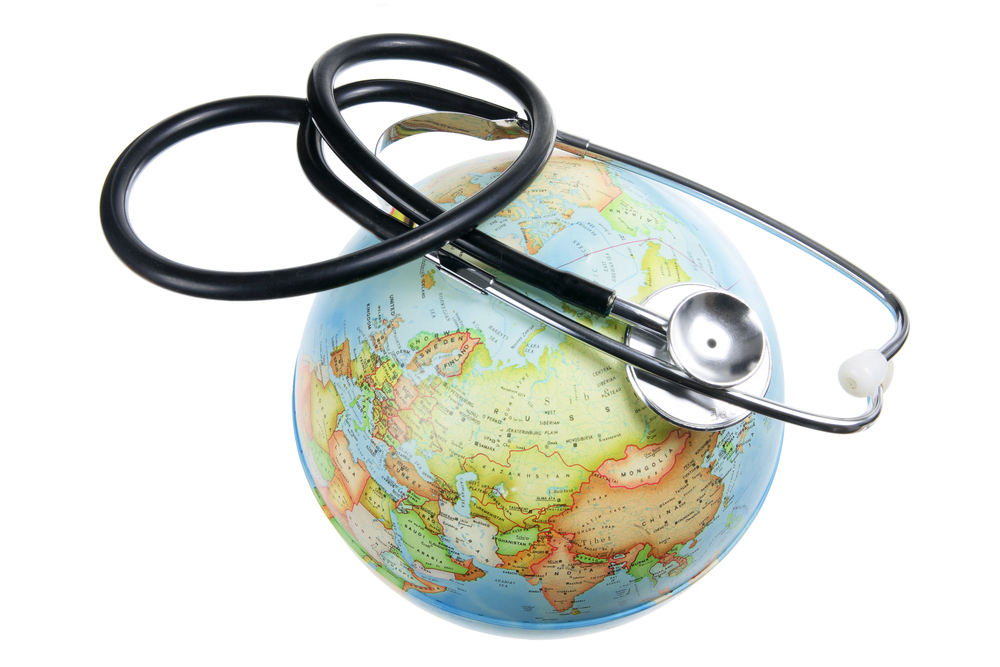Summer is almost here, which means many of us will soon be jetting off to places unknown. Travel comes with its own unique set of health risks, from unfamiliar foods to contaminated water – not to mention fatigue, jet lag, travel sickness and sunburn. You might even find yourself struck down by stress-induced “holiday flu” the minute you start to relax. After forking out for a holiday and waiting for months, we all want to get the most out of our holidays that we can, and that starts with looking after our health.
En route: Travel sickness can be easily dealt with using ginger, a natural nausea remedy beloved by expecting mothers and other sufferers of queasiness for centuries. If your butterflies have more to do with anxiety than motion, consider a calming dose of theanine, an amino acid found in green tea which promotes relaxation by stimulating alpha-type brainwaves. It encourages an alert but calm state of mind – essential for keeping track of everything during a long journey – and it’s safe to use for kids who might be over-excited or anxious. Once you arrive, the jetlag will start to set in. Some choose to power through it, others choose to nap; but to give your brain a helping hand, try a supplement of 5-HTP. This amino acid is produced naturally by your body just before melatonin, the hormone that regulates your sleep cycle. Obviously anyone on holiday looks forward to sleeping in, but getting solid, healthy sleep is essential as your body adjusts to a new environment.
“Holiday belly”: Even if the water at your destination is safe for the locals to drink, you might still find yourself in a spot of tummy trouble. Unfamiliar bacteria can play havoc with your guts, competing with your usual bacteria population and causing nausea, vomiting and diarrhoea accompanied by dehydration. Bolster your gut flora before you leave with probioticslike Saccharomyces boulardii – a key ingredient in Opti-Bac Probiotics for travelling abroad that’s well known for its effectiveness against holiday sickness,. For the best protection, combine it with an antifungal like grapefruit seed extract, to combat candida overgrowth and lessen the impact of foreign bacteria on your digestive system. Bio-Kult Candea contains seven kinds of probiotic as well as grapefruit seed extract; it also contains garlic to boost your immune system. Keep taking probiotics and antifungals all the way up to and during your holiday to keep your system strong – we recommend long or continuous courses of these supplements in any case for best results. If you do end up with a stomach bug, make sure you stick to bottled or boiled water and drink plenty of it to keep your fluids up.
The dreaded flu: We often tend to push ourselves hardest right before taking time off. It makes sense to get everything done so you don’t need to worry about work during your break – but that extra push combined with the build-up of months of fatigue takes a toll on your body. When you finally relax, your weakened immune system is open to all kinds of viruses and infections, resulting in a far less enjoyable vacation. Start building up your immune system long before you leave, with large doses of vitamin C and other essential vitamins. If you’re not already in the habit of taking a daily multivitamin, this is the perfect time to start. You can also load up your diet with vitamin-rich foods like garlic, onions, broccoli and citrus.
For extra protection, try beta glucans or propolis – they can help your immune system develop antibodies to fight off both fungal and microbial infections, while black elderberry extract attacks the viruses themselves to slow their replication rate. It’s also a source of powerful antioxidants, making it a great year-round supplement.
Beach-ready: We’ve come a long way from the days when a natural tan was considered healthy. Nowadays, we know skin cancer is a real danger and daily sun protection is our first line of defence. If you’re heading for the sun, a high-SPF sunscreen is absolutely essential – but sunscreen wears off, especially if you’re exercising or swimming, and it’s good to have some backup in case you forget to re-apply. Astaxanthin is a carotenoid, like beta carotene, which is extracted from the micro-algaeHaematoccus pluvialis. A daily dose of just 4mg can help to protect your skin from UV damage as well as fight the effects of free radicals as you age – you might see less sagging or wrinkling in your skin as a result. The effects of astaxanthin are usually best after ten weeks of use. Sunscreen, a hat and shade are still your best weapons against sun damage, but every little helps.
Finally, remember to stay hydrated. Long plane flights, beach days, alcohol and hotter climates can all contribute to dehydration and knock the fun out of your holiday. There’s no reason you can’t let loose on holiday – just keep in mind that your body is with you for life, not just those two weeks in Spain.


